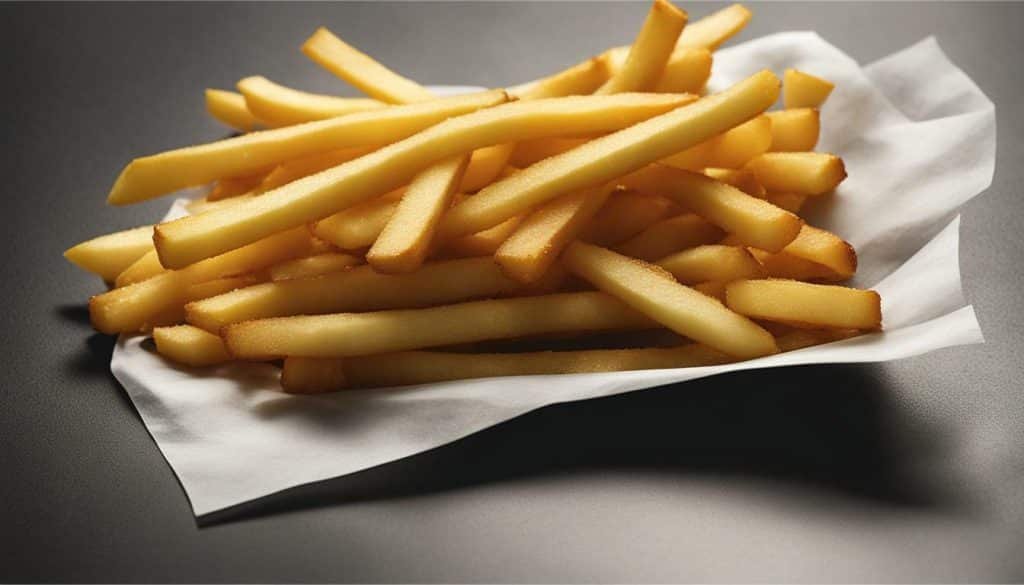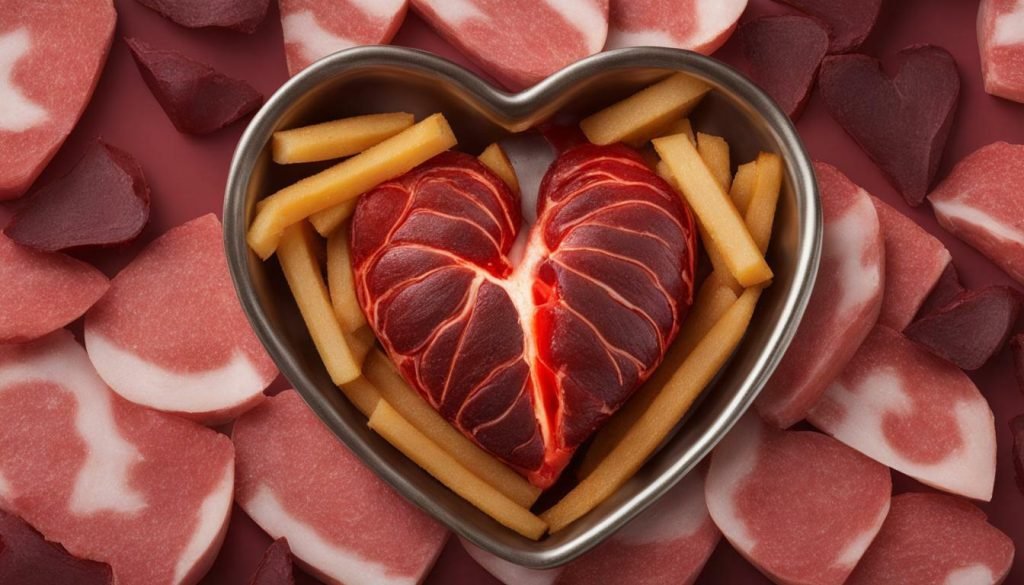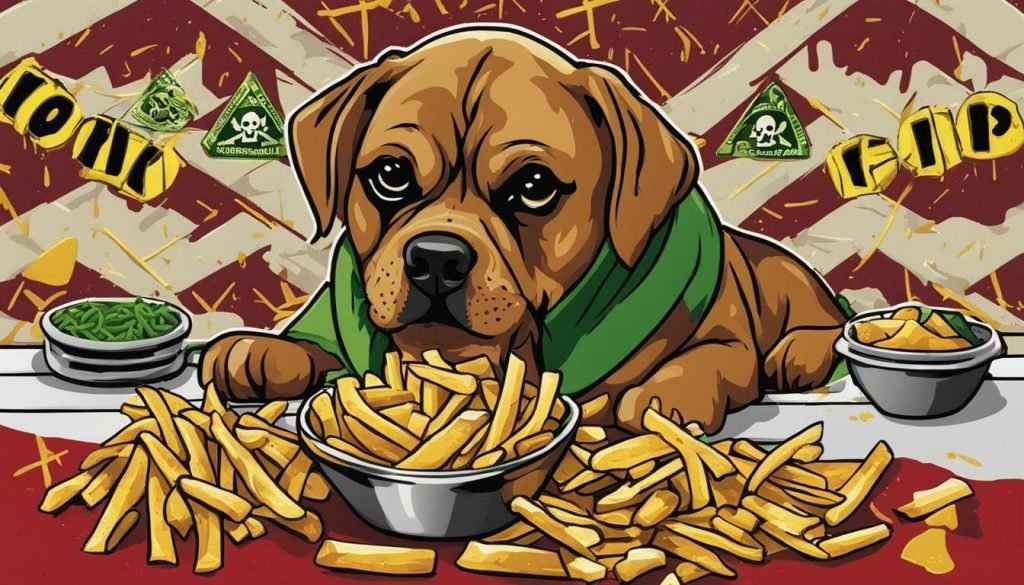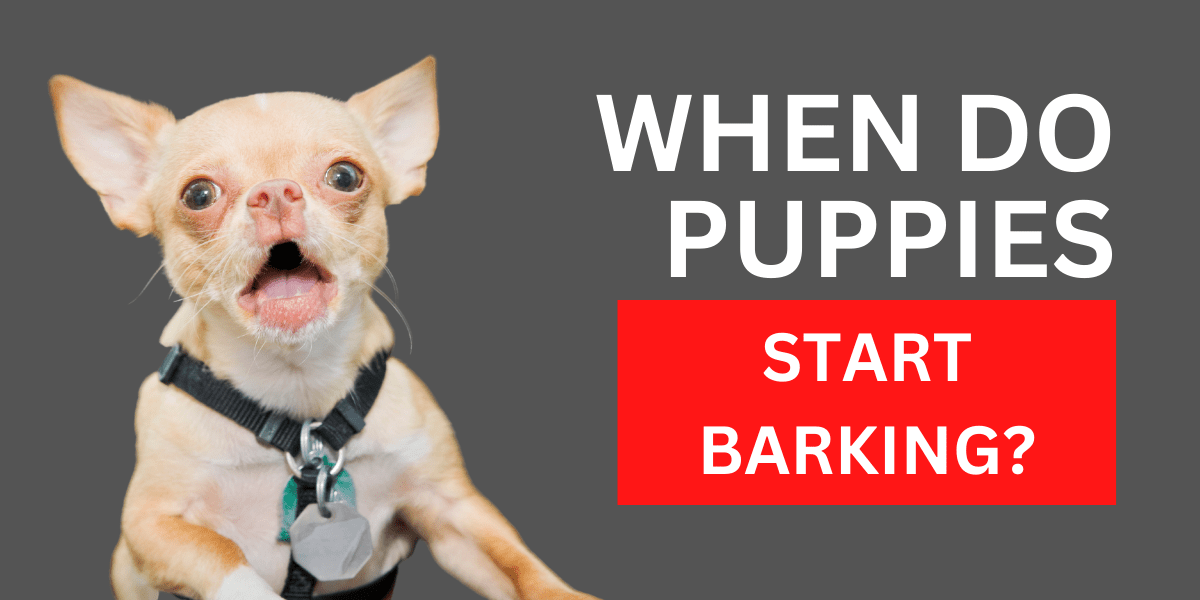
Have you ever wondered if it’s okay for dogs to eat fries or other human food? As a dog owner, it’s important to understand what foods are safe and healthy for our furry friends. In this article, we will delve into the topic of dogs consuming fries and explore alternative dietary options that can promote their overall well-being.
Can Dogs Eat Fries
- French fries are not a healthy treat for dogs due to their high fat, salt, and calorie content.
- Feeding dogs fries can lead to weight gain and health issues like heart disease and joint problems.
- Fried foods can be difficult for dogs to digest, potentially causing digestive issues such as diarrhea and vomiting.
- Dogs may experience food poisoning or allergies from consuming fries.
- Opt for safer and healthier alternative foods like carrots, apples, bananas, cooked sweet potatoes, and commercially made dog treats.
It’s important to prioritize a healthy diet for dogs and avoid compromising their health with unhealthy treats. Let’s explore further why French fries are not suitable for canine consumption and how we can make informed choices for our furry companions.
Exploring the Risks of Feeding Dogs Fries
While it may be tempting to share your fries with your furry friend, there are several risks you should be aware of. French fries are not a healthy treat for dogs due to their high fat, salt, and calorie content. These factors can lead to weight gain and potentially serious health problems such as heart disease and joint issues. It is important to prioritize a dog-friendly diet to ensure their overall well-being and longevity.
One of the main concerns with feeding dogs fries is the negative impact on their digestive system. Fried foods are difficult for dogs to digest, and consuming them can often result in diarrhea, vomiting, and other digestive issues. These symptoms can be distressing for your pet and may require veterinary attention.
Furthermore, French fries can pose a potential risk of food poisoning and allergies in dogs. The cooking process, oils, and seasonings used in frying can introduce harmful bacteria or ingredients that may trigger an allergic reaction. It is essential to be cautious and mindful of the potential hazards when sharing your human food with your four-legged companion.

To protect your dog’s health and well-being, it is recommended to avoid feeding them French fries altogether. Instead, opt for healthier alternatives that are safe for canine consumption. Carrots, apples, bananas, and cooked sweet potatoes are excellent choices that provide essential nutrients while being easily digestible for dogs. Additionally, there are commercially-made dog treats available in the market formulated specifically to meet your pet’s dietary requirements.
If your dog accidentally consumes French fries or any other inappropriate food, it is crucial to monitor them closely for any signs of illness. If symptoms persist or worsen, it is advisable to seek immediate veterinary advice. Remember, the key to a happy and healthy dog lies in prioritizing their diet and avoiding the risks associated with feeding them unhealthy treats.
The Downside of French Fries for Dogs
French fries may be a tasty treat for us humans, but they can be harmful to our canine companions. These fried delights are not suitable for a dog’s diet and can have negative effects on their health. Let’s take a closer look at why French fries pose a downside for dogs.

One of the main issues with French fries is their high fat, salt, and calorie content. Dogs have different dietary requirements than humans, and indulging in high-fat foods can lead to weight gain and related health problems. In particular, the excessive consumption of fried foods can contribute to heart disease and joint issues in dogs.
Furthermore, French fries can be difficult for dogs to digest. The greasy nature of fried foods can upset their stomachs, leading to diarrhea, vomiting, and other digestive issues. These problems not only discomfort our furry friends but can also indicate underlying health concerns.
Quote:
I always remind dog owners that feeding French fries to their pets is like giving them a toxic food. It’s important to prioritize a healthy diet for dogs to ensure their overall well-being.
In addition to digestive issues, French fries can potentially cause food poisoning or allergies in dogs. The ingredients used to season or cook the fries, such as garlic, salt, or certain oils, can be toxic or allergenic to dogs. It’s essential to be mindful of these potential risks and avoid exposing our pets to harmful substances.
In light of these downsides, it is recommended to steer clear of feeding French fries to dogs. Instead, opt for healthier alternatives that can still satisfy their cravings. Carrots, apples, bananas, and cooked sweet potatoes are all dog-friendly options that provide essential nutrients without the negative consequences. Additionally, commercially-made dog treats specifically formulated for canines are readily available and offer a safe alternative to satisfy their snack cravings.
Remember, if your dog accidentally consumes French fries, it’s crucial to monitor them for any signs of illness. If symptoms persist or worsen, don’t hesitate to contact your veterinarian for guidance. By prioritizing a healthy diet for dogs and avoiding toxic foods like French fries, we can ensure our furry friends lead happy and healthy lives.
Unhealthy Nutritional Content of French Fries
French fries are loaded with unhealthy ingredients that can have negative effects on a dog’s health. These crispy and tasty treats are typically deep-fried in oil, making them high in fat, salt, and calories. The excessive fat content can contribute to weight gain in dogs, which may lead to various health issues, including heart disease and joint problems.
Moreover, the excessive salt in French fries can be harmful to dogs. While salt is an essential nutrient for canines, too much of it can cause dehydration and kidney problems. Additionally, the high calorie content of French fries can disrupt a dog’s balanced diet and potentially result in obesity.

Not only are French fries nutritionally imbalanced, but they can also pose digestive challenges for dogs. Fried foods are difficult for dogs to digest, and consuming French fries can lead to gastrointestinal issues such as diarrhea, vomiting, and abdominal discomfort.
To provide a healthier alternative, consider incorporating nutrient-rich foods into your dog’s diet. Carrots, apples, bananas, and cooked sweet potatoes are excellent choices that offer a range of vitamins and minerals while satisfying your dog’s cravings for something tasty. Additionally, you can opt for commercially-made dog treats that are specifically formulated to meet a dog’s dietary needs.
| Unhealthy Nutritional Content of French Fries | Healthy Alternatives for Dogs |
|---|---|
| High in fat, salt, and calories | Carrots, apples, bananas, cooked sweet potatoes, commercially-made dog treats |
| Difficult to digest | Nutrient-rich foods that are easier to digest |
| Potential health risks | Reduced risk of weight gain, heart disease, joint issues, and digestive problems |
If your dog accidentally consumes French fries, it is essential to monitor them for any signs of illness. If symptoms persist or worsen, it is advisable to seek veterinary advice. Remember, prioritizing a healthy diet for your furry friend is essential to their overall well-being and longevity. By avoiding unhealthy treats like French fries and making informed dietary choices, you can provide your dog with the nutrients they need to thrive.
Potential Health Issues from Feeding Dogs Fries
Regular consumption of fries can contribute to the development of various health issues in dogs. These deep-fried treats are loaded with fat, salt, and calories, which can lead to weight gain and obesity in our furry friends. Over time, this excess weight can put strain on their hearts and joints, increasing the risk of heart disease and joint issues.
Not only are French fries detrimental to a dog’s weight and overall health, but they can also wreak havoc on their digestive system. The greasy nature of fried foods makes them difficult for dogs to digest, often resulting in diarrhea, vomiting, and other digestive issues. These uncomfortable symptoms should not be taken lightly, as they can indicate underlying problems and lead to further complications if left untreated.
Furthermore, feeding dogs fries can expose them to potential food poisoning and allergies. Like humans, dogs can have adverse reactions to certain ingredients commonly found in French fries, such as artificial flavorings, seasonings, or even the cooking oil used. Food poisoning can cause severe illnesses in dogs, while allergies may manifest as skin irritations, itching, or even respiratory difficulties. It is crucial to prioritize their well-being and avoid exposing them to unnecessary risks.
Instead of giving in to those pleading puppy eyes when indulging in a plate of fries, opt for safer and healthier alternatives. Carrots, apples, bananas, cooked sweet potatoes, and commercially-made dog treats are all excellent options that offer essential nutrients without the harmful effects. These alternatives provide a balance of vitamins, minerals, and fiber that support a dog’s overall health and can even help maintain a healthy weight.
| Unhealthy Nutritional Content of French Fries | Healthy Alternatives for Dogs |
|---|---|
| High in fat, salt, and calories | Carrots, apples, bananas, cooked sweet potatoes |
| Can contribute to heart disease and joint issues | Commercially-made dog treats |
| Difficult to digest, may cause digestive issues | |
| Potential risk of food poisoning and allergies |
If your dog accidentally consumes French fries, it is essential to monitor them for any signs of illness. Observe their behavior, appetite, and bowel movements. If they display any abnormal symptoms or if the symptoms persist, it is crucial to seek veterinary advice.
By prioritizing a healthy diet for our beloved canine companions, we can ensure their well-being and longevity. Let’s educate ourselves and others about the dangers of feeding dogs fries and promote safe and nutritious food choices. Remember, a healthy dog is a happy dog.

Dogs have sensitive digestive systems, and fried foods like French fries can be challenging for them to process. The high fat content in fries can lead to digestive disturbances, causing discomfort and potential health issues for our furry friends. Consumption of French fries can result in diarrhea and vomiting, leaving dogs feeling unwell.
In addition to being difficult to digest, French fries often contain high levels of salt and artificial flavorings, which can further exacerbate digestive problems in dogs. The excessive salt content can disrupt the delicate balance of electrolytes in their bodies, potentially leading to dehydration.
To avoid these digestive issues, it is crucial to prioritize a nutritious and balanced diet for dogs. Opting for healthier alternatives, such as carrots, apples, bananas, cooked sweet potatoes, and commercially-made dog treats, can provide essential vitamins and minerals while being easier for dogs to digest.

Feeding dogs a healthy diet not only supports their overall well-being but also helps to prevent potential health problems in the long run. It’s important to remember that dogs rely on us to make informed decisions about their food choices, ensuring they receive the nutrition they need without compromising their health.
Dog-Friendly Digestible Treats
When it comes to rewarding our furry companions, it’s essential to opt for treats that are not only safe but also easily digestible. Some great options include:
- Carrot sticks: Carrots are low in calories and high in fiber, making them a crunchy and nutritious snack for dogs. They are also beneficial for dental health.
- Apple slices: Rich in vitamins and antioxidants, apple slices can be a tasty and refreshing treat for dogs. Remember to remove the seeds and core before serving.
- Bananas: Packed with potassium and other essential nutrients, bananas are a safe and healthy treat option for dogs. They can be served as slices or mashed.
- Cooked sweet potatoes: Sweet potatoes are a great source of fiber, vitamins, and minerals. Boiled or baked sweet potato chunks can make a delicious and digestible treat for dogs.
- Commercially-made dog treats: There are various dog treat options available in the market that are specifically formulated for canine consumption. Look for treats made with natural ingredients and free from harmful additives.
By incorporating these dog-friendly alternatives into their diet, we can ensure that our furry friends enjoy delicious treats while maintaining a healthy digestive system.
Monitoring and Seeking Veterinary Advice
If your dog accidentally consumes French fries or experiences any digestive issues, it is essential to monitor their symptoms closely. If diarrhea, vomiting, or other digestive problems persist or worsen, it is recommended to seek veterinary advice promptly. A veterinarian can provide appropriate guidance and medical support to help address any health concerns and ensure your dog’s well-being.
Remember, prevention is key. By being aware of the potential digestive issues associated with feeding dogs French fries and opting for healthier alternatives, we can help maintain our dogs’ digestive health and overall happiness.
Potential Food Poisoning and Allergies
French fries can be a common culprit for food poisoning or allergic reactions in dogs. As much as we might enjoy this crispy treat, it is important to remember that our furry friends have different dietary needs and sensitivities. Feeding dogs French fries can put them at risk of experiencing digestive issues and even more serious health problems.
The high fat, salt, and calorie content of French fries can lead to weight gain and obesity in dogs. This can increase the risk of heart disease and put strain on their joints. Additionally, fried foods can be difficult for dogs to digest, potentially causing diarrhea, vomiting, and other digestive problems. It is crucial to prioritize their well-being by avoiding toxic foods like French fries and opting for healthier alternatives.

When it comes to maintaining a dog-friendly diet, there are plenty of safe and nutritious options to consider. Instead of sharing your fries, offer them dog-friendly alternatives such as carrots, apples, bananas, cooked sweet potatoes, and commercially-made dog treats. These options provide essential vitamins and minerals while keeping your furry companion satisfied.
If your dog accidentally consumes French fries, it is important to monitor them closely for any signs of illness. Keep an eye out for symptoms like vomiting, diarrhea, or changes in their behavior. If these symptoms persist or worsen, it is recommended to contact your veterinarian for further guidance. Remember, the well-being of our furry friends should always be a top priority, and a healthy diet plays a crucial role in their overall health and happiness.
Safer and Healthier Alternatives for Dogs
Instead of fries, consider offering your dog these dog-friendly alternatives for a healthier snack. These options not only provide nutritional benefits but also appeal to dogs’ taste buds.
1. Carrots
Carrots are a fantastic alternative to fries as they are low in calories and high in fiber. They also provide essential vitamins and minerals, including vitamin A, which promotes healthy eyesight. Chewing on carrots can help keep dogs’ teeth clean and reduce the risk of dental issues. You can offer carrot sticks as a crunchy treat or even freeze them for a refreshing snack on hot days.
2. Apples
Apples are packed with antioxidants and fiber, making them an excellent choice for dogs. Remember to remove the seeds and the core, as they can be choking hazards. You can slice the apple into small pieces or use an apple slicer to create apple rings. Freeze them for a tasty and refreshing treat that dogs will love.
3. Bananas
Rich in potassium, vitamins, and natural sweetness, bananas are a healthy alternative to fries. They are easy to digest and can help regulate a dog’s digestive system. You can offer small pieces of fresh banana as a treat or mash them up and freeze them in molds for a delightful homemade doggy popsicle.
4. Cooked Sweet Potatoes
Cooked sweet potatoes are a nutritious and tasty option for dogs. They are a great source of vitamins A and C, as well as fiber. You can bake or steam sweet potatoes until they are soft and offer them as bite-sized chunks. It’s important to avoid seasoning the sweet potatoes with any additives or spices, as some can be harmful to dogs.
5. Commercially-made Dog Treats
If you’re looking for convenient options, there are plenty of commercially-made dog treats available that are specifically formulated for canine health. These treats come in various flavors and textures, catering to different dietary needs and preferences. Look for treats made from high-quality ingredients and avoid those with excessive additives or fillers.
Remember, when introducing new foods to your dog’s diet, it’s essential to do so gradually and in moderation. Monitor your dog’s reaction to each alternative and consult with your veterinarian if you have any concerns or questions.

If your dog accidentally eats fries, it’s crucial to keep a close eye on them and know when to reach out to a veterinarian. Even a small amount of fries can have adverse effects on a dog’s health, so it’s important to be vigilant. Monitor your dog for any signs of discomfort or illness, such as vomiting, diarrhea, or excessive thirst. These can be indications of digestive issues or food poisoning.
In some cases, dogs may also have allergies to certain ingredients in fries, such as artificial flavorings or seasonings. If you notice any signs of an allergic reaction, such as itching, swelling, or difficulty breathing, seek immediate veterinary assistance.
Remember, the health and well-being of your dog should always be a top priority. If you have any concerns after your dog has consumed fries, don’t hesitate to contact your veterinarian. They can provide guidance on whether further medical attention is needed and offer advice on how to alleviate any discomfort your dog may be experiencing.
Table: Signs to Look Out for After a Dog Consumes Fries
| Signs of Digestive Issues | Signs of Allergic Reaction | Signs of Food Poisoning |
|---|---|---|
|
|
|
By being proactive and monitoring your dog’s health, you can take the necessary steps to safeguard their well-being. Remember to always consult with a veterinarian for professional advice tailored to your dog’s specific needs.

Providing a healthy diet for your dog is essential for their overall well-being and longevity. Just like humans, dogs require a balanced and nutritious diet to thrive. It is crucial to understand that not all foods that are safe for humans are safe for dogs. In fact, some human foods can be toxic to dogs and can cause serious health issues.

When it comes to choosing the right food for your furry friend, it’s important to prioritize their health and avoid feeding them unhealthy treats. French fries, for example, are not a suitable option for dogs. They are high in fat, salt, and calories, which can contribute to weight gain, heart disease, and joint issues. Additionally, the fried nature of French fries can make them difficult for dogs to digest, leading to digestive problems such as diarrhea and vomiting.
To ensure a healthy diet for your dog, consider incorporating safer and healthier alternatives. Vegetables like carrots and cooked sweet potatoes can serve as nutritious snacks. Fruits such as apples and bananas can also be given in moderation as they provide essential vitamins and minerals. Furthermore, there are commercially-made dog treats available that are specifically formulated to meet the dietary needs of dogs.
Healthy Food Options for Dogs:
| Food | Nutritional Benefits |
|---|---|
| Carrots | Rich in vitamins A and K, and high in fiber. |
| Apples | Contains antioxidants, fiber, and vitamins A and C. |
| Bananas | High in potassium, vitamins B6 and C, and fiber. |
| Cooked Sweet Potatoes | Excellent source of dietary fiber, vitamins A and C, and antioxidants. |
| Commercially-made Dog Treats | Formulated with the necessary nutrients for a balanced diet. |
It’s important to remember that every dog is unique, and their dietary needs may vary. It is recommended to consult with a veterinarian to determine the most suitable diet for your dog, taking into consideration their age, size, breed, and any specific health conditions they may have. Monitoring your dog’s health after introducing new food items is essential, and if any adverse symptoms persist, seeking veterinary advice is crucial.
Educating Others on the Dangers of Feeding Dogs Fries
Sharing knowledge about the potential dangers of feeding fries to dogs is vital in ensuring their health and happiness. While we may enjoy indulging in a plate of fries, it’s important to remember that these delicious treats are not suitable for our furry friends. Feeding dogs fries can pose significant risks to their well-being, both in the short and long term. By spreading awareness about these dangers, we can help prevent unnecessary health issues and promote safe food choices for our beloved pets.
One of the main reasons why fries are not recommended for dogs is their unhealthy nutritional content. As mentioned earlier, fries are high in fat, salt, and calories, which can lead to weight gain and serious health problems. Canine obesity is a growing concern, as it increases the risk of heart disease and puts strain on their joints. It’s essential to prioritize a healthy diet for our dogs and avoid compromising their well-being with unhealthy treats like fries.
Furthermore, French fries can be difficult for dogs to digest. The frying process makes them more challenging to break down, which can result in digestive issues such as diarrhea and vomiting. These symptoms can cause discomfort and potentially lead to dehydration if not addressed promptly. Choosing alternative food options that are easier on their digestive system, such as carrots, apples, bananas, cooked sweet potatoes, or commercially-made dog treats, is a safer and healthier choice.
| Potential Risks of Feeding Dogs Fries: | Safe Food Alternatives: |
|---|---|
| High in fat, salt, and calories | Carrots, apples, bananas |
| Can lead to weight gain and heart disease | Cooked sweet potatoes, commercially-made dog treats |
| Can cause digestive issues – diarrhea, vomiting | |
| Can potentially cause food poisoning or allergies |
If your dog accidentally consumes fries, it’s crucial to monitor them for any signs of illness. Contacting a veterinarian is advisable if symptoms persist or if you have any concerns. Remember, prevention is better than cure, and by educating others about the risks associated with feeding fries to dogs, we can help create a safer and healthier environment for our four-legged companions.

In Conclusion
While dogs may beg for a taste of your fries, it’s best to prioritize their health and stick to safe, dog-friendly food options. French fries are not a healthy treat for dogs. They are high in fat, salt, and calories, which can lead to weight gain and health problems such as heart disease and joint issues.
Additionally, fried foods can be difficult for dogs to digest and may cause diarrhea, vomiting, and other digestive issues. French fries can also potentially cause food poisoning or allergies in dogs. It is recommended to avoid feeding French fries to dogs and opt for healthier options such as carrots, apples, bananas, cooked sweet potatoes, and commercially-made dog treats.
If a dog accidentally consumes French fries, it is important to monitor them for any signs of illness. If symptoms persist or worsen, it is advisable to contact a vet for further guidance. By prioritizing a healthy diet for dogs and avoiding unhealthy treats like French fries, we can ensure their overall well-being and happiness.
FAQ
Can dogs eat fries?
No, fries are not a healthy treat for dogs. They are high in fat, salt, and calories, which can lead to weight gain and health problems.
Why are fries bad for dogs?
Fries are unhealthy for dogs because they contain ingredients that can cause weight gain, heart disease, joint issues, and digestive problems.
What are the potential health issues from feeding dogs fries?
Dogs that regularly consume fries may be at risk of developing heart disease, joint issues, and other related health problems.
Can fries cause digestive issues in dogs?
Yes, fried foods like fries can be difficult for dogs to digest and may result in diarrhea, vomiting, and other digestive issues.
Are fries toxic to dogs?
Fries are not toxic per se, but they can potentially cause food poisoning or allergies in dogs.
What are some safer and healthier alternatives for dogs?
Opt for alternatives like carrots, apples, bananas, cooked sweet potatoes, and commercially-made dog treats instead of feeding fries to dogs.
Should I monitor my dog after they eat fries?
Yes, it is important to monitor your dog for any signs of illness after they consume fries. Contact a vet if symptoms persist.
How important is a healthy diet for dogs?
A healthy diet is crucial for dogs as it contributes to their overall well-being and helps prevent health issues. Avoid compromising their health with unhealthy treats like fries.
Why is it important to educate others about the risks of feeding dogs fries?
Spreading awareness about the risks of feeding fries to dogs will help promote safe food choices and protect canine health.






